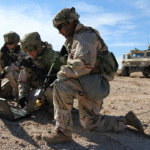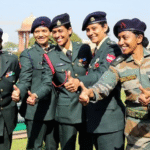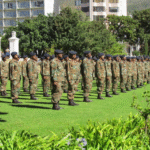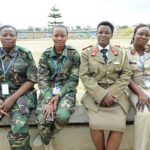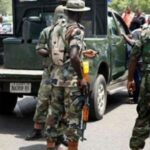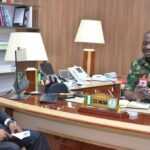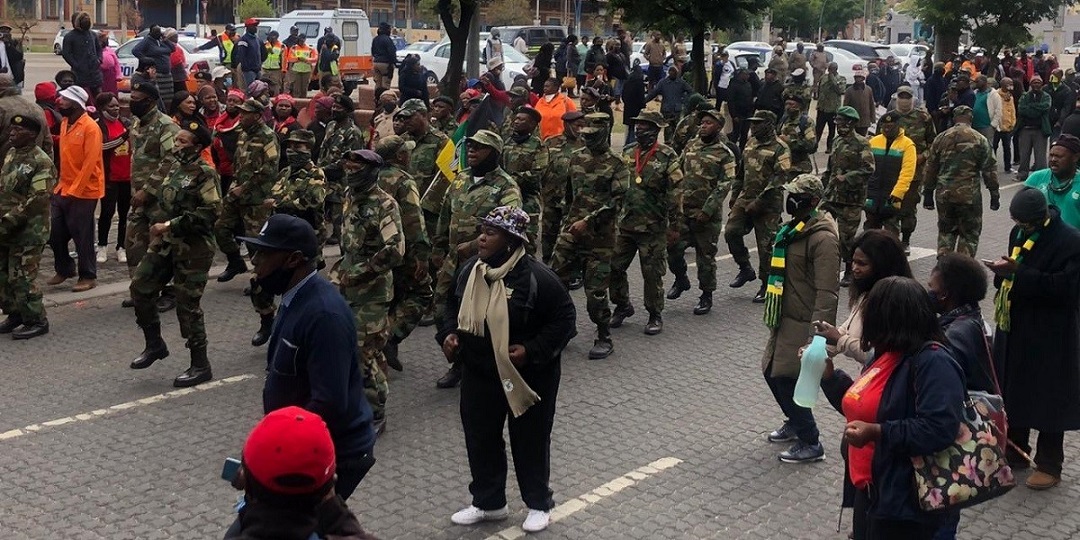
VETERANS – PENSION REFORM AND THE WELFARE OF AFRICAN MILITARY VETERANS
Across Africa, military veterans embody the sacrifices made for national liberation and peacekeeping, yet their post-service welfare remains precarious amid economic strain and governance gaps. Pension reforms have become central to addressing these challenges—seeking to ensure financial stability, healthcare access, and social reintegration for those who fought from Algeria’s independence to recent missions in the Sahel. In 2025, as national budgets tighten under debt and climate pressures, reforms in countries such as South Africa and Nigeria reveal both progress and persistent shortcomings. While new legislation promises equitable benefits, bureaucratic delays and funding constraints continue to erode veterans’ dignity, prompting protests and renewed calls for comprehensive welfare systems that go beyond pensions to include mental health care and skills development.
The roots of veterans’ welfare issues trace back to colonial and post-independence armies, where demobilized soldiers often lacked structured reintegration. During the civil conflicts of the 1990s and 2000s in Sierra Leone, Liberia, and the Democratic Republic of Congo, pensions were promised as part of disarmament deals but rarely materialized. Post-war reconstruction frequently overshadowed long-term commitments, resulting in fragmented, corruption-prone systems. In Zimbabwe, war veterans once influential in land reforms later faced neglect in basic welfare support—illustrating a broader African pattern where political expediency fades into marginalization. Reforms today must recognize veterans not as relics of war but as valuable contributors to peacebuilding and community stability.
Related Article: THE SILENT CRISIS: PTSD AMONG AFRICA’S MILITARY VETERANS
Contemporary African veterans face a convergence of economic and social hardships. Inflation and rising living costs diminish fixed pensions, while healthcare systems fail to meet needs arising from injuries, PTSD, and chronic illness. Many veterans depend on overcrowded public facilities or delayed programs. In Namibia, for example, counselling and adult education initiatives struggle to keep pace with demand, impeding reintegration and personal development. Pension arrears often unpaid for years push families into poverty, exacerbating gender inequality as female veterans, frequently omitted from official records, fare the worst.
These pressures threaten not only livelihoods but also social cohesion, as unemployed ex-soldiers become vulnerable to exploitation and crime.
South Africa illustrates the tension between policy ambition and administrative inertia. The Military Veterans Act of 2011 established a legal foundation for pensions, yet implementation lagged for over a decade. When the Government Pension
Administration Agency began processing claims in late 2023, it disbursed R217 million to over 4,000 veterans by mid-2025. Despite this progress, many former fighters criticize incomplete databases and protracted verification processes. The Department of Military Veterans’ 2025–2030 Strategic Plan aims to reach 9,500 beneficiaries by 2027, but observers argue that underfunding and weak oversight continue to stall meaningful delivery.
In Nigeria, pension reform debates have ignited widespread protests over delays and discrepancies in military retirement benefits. Early 2025 demonstrations were halted only after the Military Pensions Board pledged to clear arrears and implement a 20% pension increase alongside payment of the Security Debarment Allowance. Although military retirees are exempt from new taxation under the National Tax Amendment Act, disbursement bottlenecks persist, particularly in processing next-of-kin payments.
Elsewhere, smaller states display varying reform trajectories from gradual innovation to stagnation. In Zimbabwe, veterans continue to demand action on housing and education benefits despite constitutional recognition of their contributions. Namibia’s integration of lifelong learning into veteran programs demonstrates promise but suffers from administrative delays. Regionally, the African Union’s Agenda 2063 advocates harmonized veteran welfare frameworks, yet countries in conflict zones especially across the Sahel struggle to balance expanding veteran populations with limited fiscal capacity. These disparities underscore the need for coordinated continental policies to standardize benefits and ensure equitable recognition of service.
Encouragingly, several initiatives signal a shift toward sustainability and transparency. South Africa’s Draft Military Veterans Pension Regulations, released for public comment in August 2025, aim to fix eligibility inconsistencies and streamline payment schedules. Nigeria’s adoption of automated payment systems could serve as a continental model, while global partners like the World Bank urge responsible funding mechanisms to prevent ballooning defence expenditures. Emerging technologies such as block chain promise tamper-proof pension disbursements, and NGOs are expanding mental health support through community-based programs. By 2030, reform plans envision veterans as active mentors in civic and youth engagement, linking pensions to community leadership and national service.
Ultimately, pension reform must transcend narrow financial relief to holistically uplift Africa’s military veterans. Governments face a moral and social imperative: to honour the courage of those who secured national independence and peace by guaranteeing them dignity in old age. Sustained political will, transparent administration, and inclusion of veterans in policymaking are essential to rebuild trust and stability.
King Richard Igimoh, Group Editor ALO
King Richard Igimoh, Group Editor African Leadership Organisation is an award-winning journalist, editor, and publisher with over two decades of expertise in political, defence, and international affairs reporting. As Group Editor of the African Leadership Organisation—publishers of African Leadership Magazine, African Defence & Security Magazine, and Africa Projects Magazine—he delivers incisive coverage that amplifies Africa’s voice in global security, policy, and leadership discourse. He provides frontline editorial coverage of high-profile international events, including the ALM Persons of the Year, the African Summit, and the African Business and Leadership Awards (ABLA) in London, as well as the International Forum for African and Caribbean Leadership (IFAL) in New York City during the United Nations General Assembly.
Recent Posts
Categories
- Air & Aerospace16
- Border Security15
- Civil Security4
- Civil Wars4
- Crisis5
- Cyber Security8
- Defense18
- Diplomacy19
- Entrepreneurship1
- Events5
- Global Security Watch6
- Industry8
- Land & Army8
- Leadership & Training5
- Military Aviation5
- Military History27
- Military Speeches1
- More1
- Naval & Maritime9
- Resources2
- Security12
- Special Forces1
- Systems And Technology9
- Tech6
- Uncategorized3
- UNSC1
- Veterans6
- Women in Defence9
Related Articles
Honouring Legacy: Military Museums and Memorials Across Africa
Africa’s military history is rich, complex, and often untold. From pre-colonial warrior...
Byadmag_adminJune 26, 2025From Combat to Civil Service: Veterans Transitioning into National Leadership
Across Africa, a quiet but significant transformation is underway: former soldiers are...
Byadmag_adminJune 26, 2025Women Veterans in Africa: Breaking the Silence and Leading the Way
From frontline combat to strategic command, African women have served their nations...
Byadmag_adminJune 26, 2025Forgotten Heroes: The Untold Stories of African Peacekeeping Veterans
Africa has long been a crucial contributor to global peacekeeping, supplying tens...
Byadmag_adminJune 26, 2025


